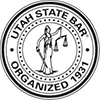Yes. The rules for workers' comp are not restricted to brick and mortar office buildings. Salespeople, delivery people, and a growing workforce of home office workers are all covered by workers’ compensation insurance the same as if they were at the office. As a general proposition, the Workers’ Compensation Act, Utah Code Ann. Sec. 34A-2-401, applies to “work at home” situations when a person sustains an injury by accident “arising out of and in the course of” the worker’s employment.
What do you do if your employer doesn’t think your injury happened at work? Even when employers dispute the validity of an injury or illness, they must still report it. Reporting an alleged injury or illness is not an admission of liability. Employers can contact their insurance carrier to explain why they don't believe a workers’ compensation claim is valid.
Even if employers dispute the validity of an injury or illness, they must still report it. Reporting an alleged injury or illness is not an admission of liability. Employers can contact their insurance carrier to explain why they don't believe a workers’ compensation claim is valid.
While your medical treatment would still be covered, disability compensation may be denied or reduced for an injured worker if the injury is caused by the use of alcohol or illegal drugs. This can be very dependent on the type of injury and the type of drug test.
Possibly. A volunteer for a government entity is entitled to workers’ compensation medical benefits, and in some cases, disability benefits. A volunteer for a non-government entity is not considered an employee and is not entitled to workers’ compensation benefits, unless the non-government entity chooses to provide coverage for the volunteer.







